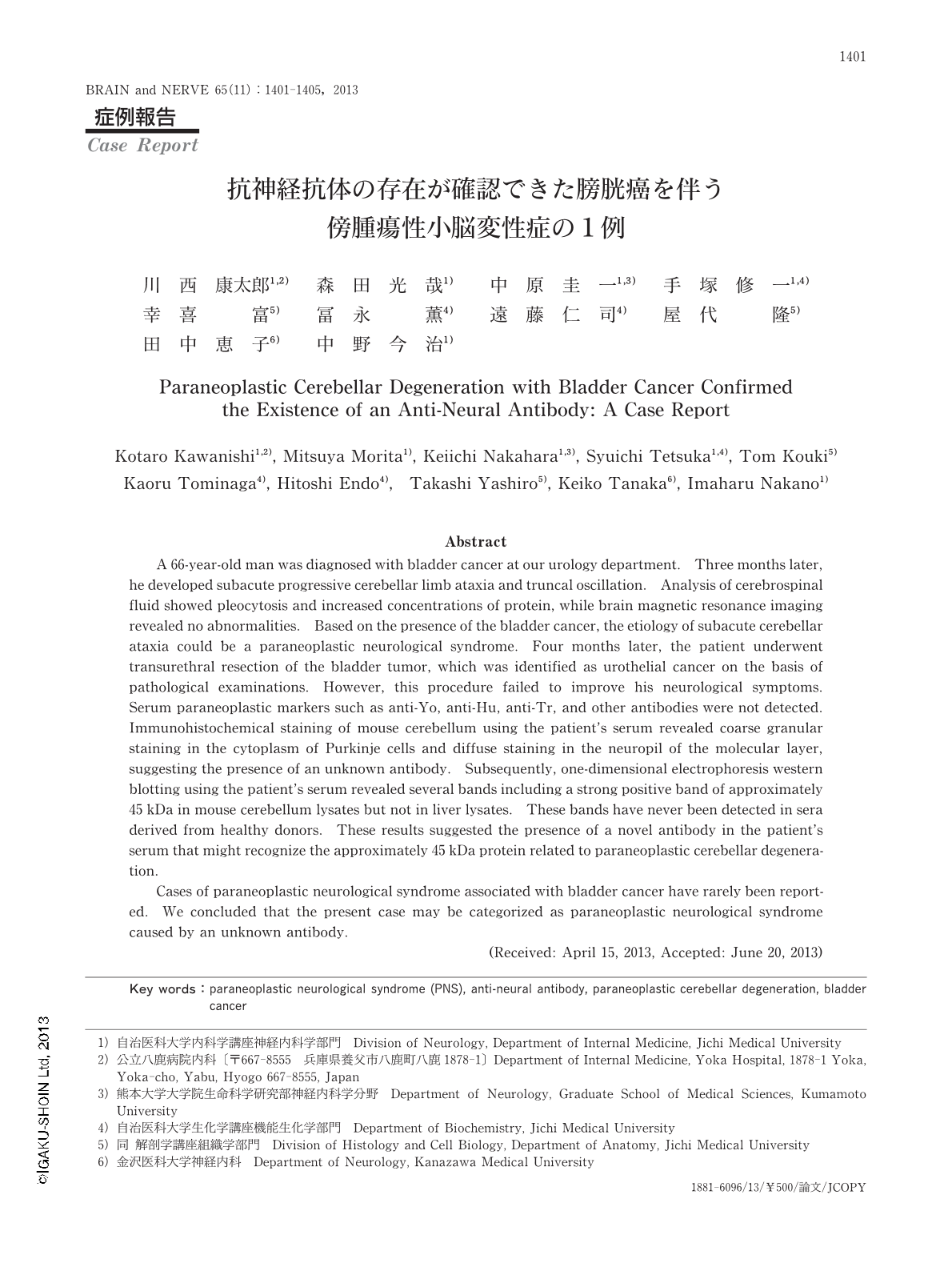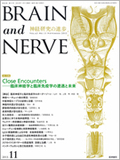Japanese
English
- 有料閲覧
- Abstract 文献概要
- 1ページ目 Look Inside
- 参考文献 Reference
- サイト内被引用 Cited by
はじめに
傍腫瘍性神経症候群(paraneoplastic neurological syndrome:PNS)は担癌者に生じる,自己免疫機序によると考えられる神経障害である1)。多くの場合,腫瘍と神経組織に共通する抗原に対する自己抗体が存在し,抗体の種類と神経症候および腫瘍原発巣の間には一定の傾向がある。このため,抗体の検出がPNSの診断および腫瘍の早期発見のマーカーとして有用であるが2),特異的抗体が検出されない場合もある。辺縁系脳炎や亜急性小脳性運動失調など特徴的症候を呈して5年以内に悪性腫瘍が明らかになる症例や,腫瘍の治療に伴って神経症状が改善する症例はPNSと診断される3)。
膀胱癌によるPNSは過去に3例が報告されているのみである4-6)。今回筆者らは,膀胱癌に伴った既知の抗体陰性のPNS例において,免疫組織化学染色およびウエスタンブロットの結果から未知の抗体の関与が考えられたため報告する。
Abstract
A 66-year-old man was diagnosed with bladder cancer at our urology department. Three months later, he developed subacute progressive cerebellar limb ataxia and truncal oscillation. Analysis of cerebrospinal fluid showed pleocytosis and increased concentrations of protein, while brain magnetic resonance imaging revealed no abnormalities. Based on the presence of the bladder cancer, the etiology of subacute cerebellar ataxia could be a paraneoplastic neurological syndrome. Four months later, the patient underwent transurethral resection of the bladder tumor, which was identified as urothelial cancer on the basis of pathological examinations. However, this procedure failed to improve his neurological symptoms. Serum paraneoplastic markers such as anti-Yo, anti-Hu, anti-Tr, and other antibodies were not detected. Immunohistochemical staining of mouse cerebellum using the patient's serum revealed coarse granular staining in the cytoplasm of Purkinje cells and diffuse staining in the neuropil of the molecular layer, suggesting the presence of an unknown antibody. Subsequently, one-dimensional electrophoresis western blotting using the patient's serum revealed several bands including a strong positive band of approximately 45 kDa in mouse cerebellum lysates but not in liver lysates. These bands have never been detected in sera derived from healthy donors. These results suggested the presence of a novel antibody in the patient's serum that might recognize the approximately 45 kDa protein related to paraneoplastic cerebellar degeneration. Cases of paraneoplastic neurological syndrome associated with bladder cancer have rarely been reported. We concluded that the present case may be categorized as paraneoplastic neurological syndrome caused by an unknown antibody. (Received: April 15, 2013, Accepted: June 20, 2013)

Copyright © 2013, Igaku-Shoin Ltd. All rights reserved.


